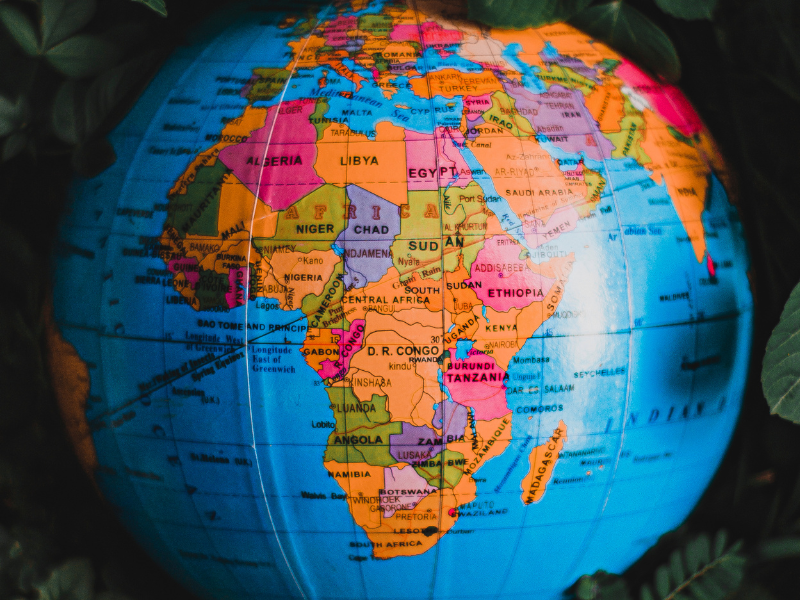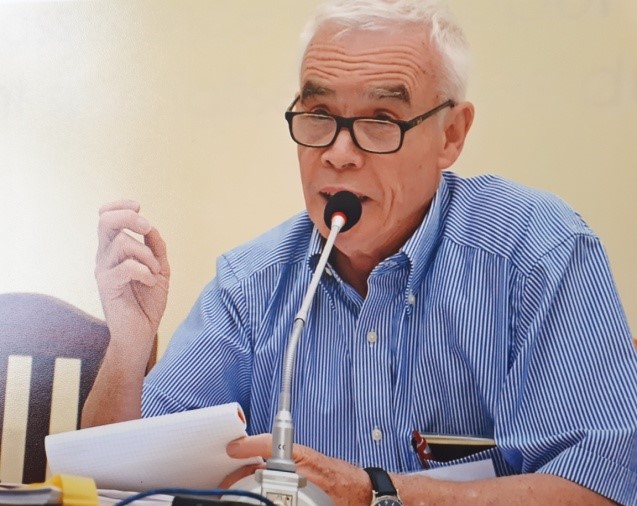The renaissance of Africa
Benoît THERY presents African cultures and their broad convergence, drawing on the history of the continent and its values, to explain its current affairs and its management.

Benoît THERY, consultant in human resources geopolitics, has in-depth knowledge of Africa and has just published Intercultural Management in Africa. The Renaissance (Editions ems Management et Société).
It presents African cultures and their broad convergence, drawing on the history of the continent and its values, to lead to its current affairs and its management. He gives us some codes to better understand the renaissance of Africa.
Africa, a continent with many facets
Despite a great diversity of peoples, cultures and languages, there is a broad convergence of values and modes of action of Africans, from the Strait of Gibraltar to the Cape of Good Hope, and from the Atlantic Ocean to the Indian Ocean. .
After the “Renaissance” of Europe, which was the period of discovery of Africa by the Portuguese, can we speak today of the “Renaissance” of Africa?
Africa is taking off with the expansion of its markets, strong demographic growth, the emergence of a middle class and its expanded consumption capacities, its full transition to the digital economy and an entrepreneurial spirit. very dynamic.
The cultural context of Africa
The values, the ways of relating, the conditions for success in business are very different from those of Europe. The cultural foundations find their origin in the tormented history of Africa which makes up its plural identity and in the spiritualities which make up its values.
Rich in its ancient civilizations and kingdoms, sometimes very brilliant but too little known, African history is also the scene of numerous conflicts, as in Europe and elsewhere. Their captives fueled internal African slavery, but also its “export” through the “Islamic” trade (Arab, Persian and Turkish) from the 8th to the end of the 19th century and through the “Atlantic” trade from the 16th to the end of the 19th century. beginning of the 19th century.
Slavery
Merchant slavery should not be confused with state colonization; they were neither the product of the same periods nor the same actors. Only the Portuguese state, which preceded other European countries in colonization by 3 and a half centuries, used African slavery to develop its empire in Brazil, because the Pope had banned that of Amerindians.
Contrary to what we sometimes think, it was European colonization at the end of the 19th century that abolished slavery in Africa.
Colonization
Colonization, which goes from the Berlin Conference (1884-1885) to independence around 1960, results in an impossible assessment, between on the one hand its infrastructures, its technologies, its institutions and public services, and its European languages that the new independent States appropriated, and on the other hand the fighting and sometimes the massacres, the humiliation, forced labor, the exploitation of its raw materials and the attempts at cultural assimilation that it imposed in Africa .
Independence
After independence, political “pan-Africanism” developed, accompanied by the cultural movement of “negritude”. It is difficult to find more multicultural and multilingual than Africans, with the coexistence of their 2,200 peoples and languages, their traditions of transhumance, trading, migrations, their habituation to cultures imported from different horizons and eras, including today especially that of China.
Intercultural management in Africa
Relations between Europe and Africa remain marked by the legacies of a relationship of domination in the past and by fundamental cultural differences which must be taken into consideration to establish a fruitful collaboration.
Differences in the organization of society
- The recent character of modern African States and “hybrid” between the ancestral model and the colonial model
- The strong influence of different community levels (extended family, clan, village, ethnic group). The obligation of community solidarity can lead to tendencies towards corruption among those invested with power, in order to respond to the multiple requests of those close to them.
- The greater importance of spirituality and traditional values, the very frequent syncretism between traditional religions and imported religions (mainly Islam and missionary Christianity)
Differences in the professional field
- The relationship of authority is both more hierarchical and more “paternal”.
- Assertion in the group is based more on “face” (notably the elegance of behavior, speech and even clothing), but consensus is desired.
- Conviviality at work is more sought after.
- The motivations are more collective.
- Time management is more flexible and less planned (time is another name for God, they say in Ivory Coast, man is not its master).
- The information is more implicit; the status is based more on criteria of origin (ethnic group, caste, filiation, age).
- Risk is more accepted and experienced.
- The rule is less universal and adapts to the relationship with the current interlocutor.
To succeed in Africa, it is first important to establish personal relationships leading to trust and respect for one's word.
The soul of Africa
Traditional African religions, contrary to appearances, are monotheistic in essence, but the supreme and creator god remains inaccessible. We then address, through priests or ancestors, second-rank deities, representative of the environment.
“The voice of fire is heard, hear the voice of water.
Listen to the sobbing bush in the wind:
It is the breath of the ancestors.
Those who died never left:
They are in the lightening shadows and in the deepening shadows.
The dead are not under the earth: they are in the quivering tree,
They are in the groaning wood, they are in the flowing water.
They are in the box, they are in the crowd:
The dead are not dead.”
Birago Diop, Senegalese poet
In the Gulf of Guinea, Mami Wata is a very popular divinity of the sea, described in the form of a mermaid or a very beautiful woman, revered and feared, who is found as far as the coasts of Cameroon and Congo. The character of the Atlantic is attributed to it: both beautiful like the ocean and the foam of its waves, and sensual like its warm sandy beaches, but dangerous like its fatal currents or the bar faced by the canoe of the fisherman. Priests or marabouts offer to intercede with it when swimmers and fishermen ask that it not swallow you up under its delicious and fishy, but always dangerous, waters.
Thus, the tradition of Africa can nourish our modernity through a respectful balance and intimacy with nature, inhabited by ancestors and divinities. This understanding and this dialogue between different worlds of living things preceded in Africa the ecological and philosophical trends which today in the West want to rediscover respect and harmony of human nature with mineral, plant and animal nature.
